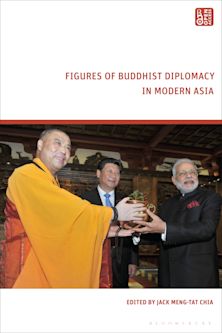- Home
- ACADEMIC
- Politics & International Relations
- Asian Politics
- China Tomorrow
This product is usually dispatched within 1 week
- Delivery and returns info
-
Free CA delivery on orders $40 or over
You must sign in to add this item to your wishlist. Please sign in or create an account
Description
Arguing against conventional wisdom, this important book makes a compelling case for the continuing strength of China’s one-party system. Many analysts have predicted that China’s unprecedented economic development and middle-class expansion would lead to a liberalization of its political regime and a move toward democracy. Instead, leading scholar Jean-Pierre Cabestan contends that the Chinese Communist Party will continue to adapt and prosper in the coming decades, representing a growing challenge to all democracies. Influenced by China’s traditional culture and even more so by the regime’s Soviet ideology, institutions, and modus operandi, most Chinese are not pushing for democracy, choosing security, stability and prosperity over political freedoms and participation.
Table of Contents
1 China’s Current Political System: A Strong, Sustainable, Authoritarian Equilibrium
2 Bureaucratic Tradition and the Soviet Model: Patterns of State Hegemony
3 Democratic Culture: Repressed, Fragile, and Distorted
4 Civil Society: Leashed by the Party-State
5 The Role of Elites: Shaping Political Evolution
6 China’s Future: Toward an Authoritarian and Imperial Political System
A Regime on Extended Reprieve
About the Author
Product details
| Published | Jun 21 2019 |
|---|---|
| Format | Hardback |
| Edition | 1st |
| Extent | 218 |
| ISBN | 9781538129579 |
| Imprint | Rowman & Littlefield |
| Dimensions | 233 x 164 mm |
| Publisher | Bloomsbury Publishing |
About the contributors
Reviews
-
China Tomorrow is relevant to protestors’ demands for democratic elections under universal suffrage, and because he is a professor in Hong Kong, Cabestan’s analysis has been in demand. China Tomorrow’s explanation of ways in which freedoms granted often help to consolidate Party leadership over society is useful in understanding the restraint of the party-state and its willingness for disorder in Hong Kong to continue.
The China Journal
-
The book is a careful and structured look at an emerging super power, and especially the carefully constructed party-state as it emerges under Xi. . . . The book makes an important and unapologetic contribution to a more realistic appreciation of modern China.
Pacific Affairs
-
Cabestan has used his long scholarly engagement with China and wide reading to describe the remarkable hybridity of the Communist Party and the ways that this operates as a source of strength and flexibility. This is a nuanced and focused corrective to the more apocalyptic work on China's future—one that shows that while beset by challenges, the party's keen sense of survival and its use of opacity and control means it is likely to be the only viable game in town for some time yet.
Kerry Brown, King's College London
-
In this impressively well-informed book, Cabestan presents a comprehensive analysis of China’s political system, its history and culture, and its policies and achievements. He argues convincingly that even though the Chinese system is beset with difficulties, it is too strong to collapse for a long time to come. And even when the current system does finally weaken, it is likely to remain authoritarian and resistant to Western influence, only less orderly and more dangerous than it is today. This is a valuable contribution to our understanding of China today and our ability to understand its probable future.
Andrew J. Nathan, Columbia University
-
Don't be misled by the question mark: China tomorrow—and for the next decade at least—will remain dictatorial. Most Chinese are grateful to the regime that relieved them from poverty. Far beyond this commonsense remark, Cabestan’s comprehensive analysis of factors such as democratic values, civil society, and the role of elites takes care to give full weight to every conceivable objection before concluding in favor of the party-state's resilience. For such an audacious synthesis dealing with the future to be convincing is both wonderful and unfortunate: Cabestan himself would prefer to be proven wrong.
Lucien Bianco, Ecole des Hautes Etudes en Sciences Sociales



































